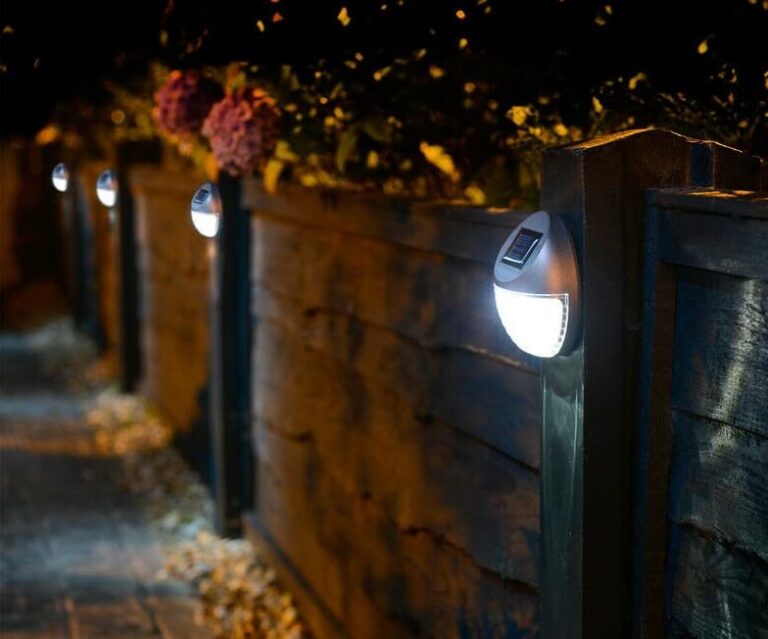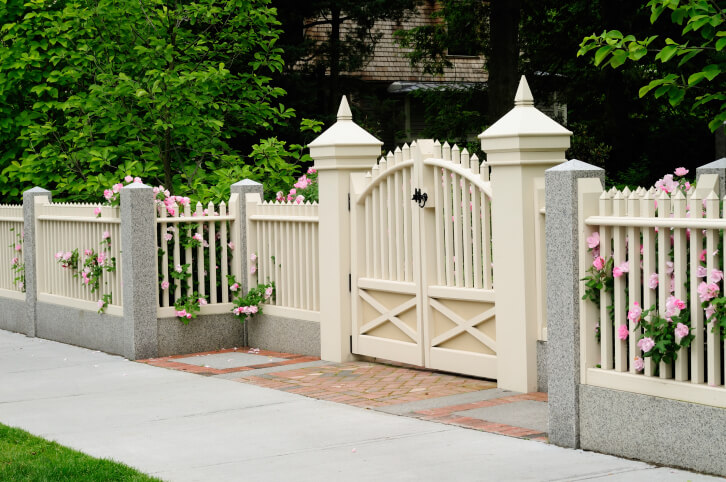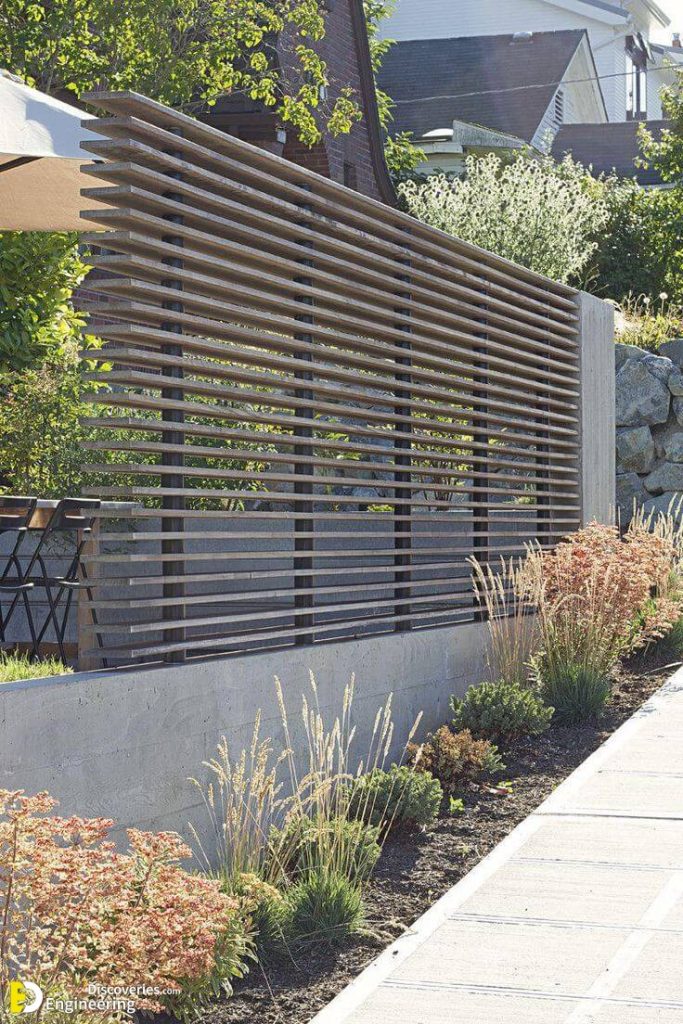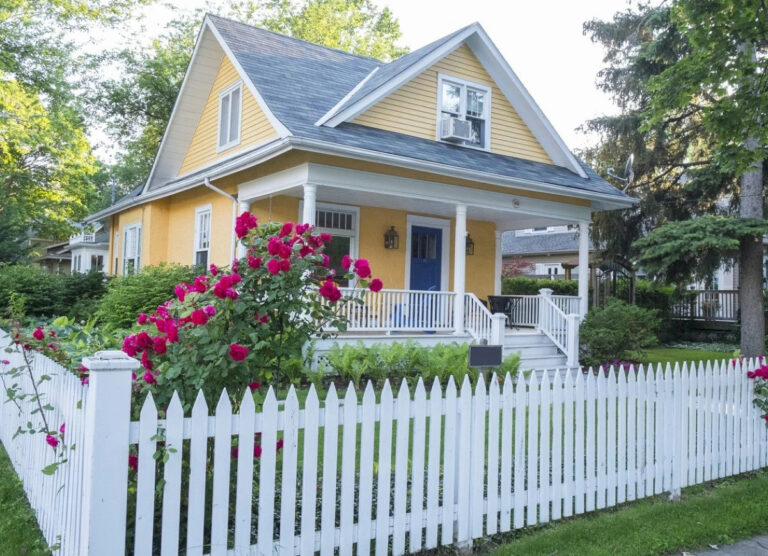When choosing fencing for historic homes, consider styles that complement the architecture and materials that match the period. It’s important to maintain the historical integrity of the home while providing security and privacy.
Historic homes come with a unique charm and character that should be preserved and enhanced by the right fencing choice.
Selecting the right fencing for a historic home involves careful consideration of the architectural style, historical significance, and the overall aesthetic value of the property.
It’s essential to choose fencing that not only provides security and privacy but also complements and enhances the historic charm of the home.
In this guide, we will explore the key factors to consider when choosing fencing for historic homes, as well as the different options available to help you make an informed decision.
By understanding the unique needs of historic properties, you can choose fencing that adds to the overall appeal and value of your home while maintaining its historical significance.

Importance Of Historical Context
When choosing fencing for historic homes in Vacaville, it’s crucial to consider the historical context of the property.
Customized fencing designs for Vacaville can play a pivotal role in enhancing the overall appeal of a historic home.
The fencing should harmonize with the architectural style, preserve the original aesthetic, and uphold the historical significance of the home.
Tailoring fencing designs to the unique charm of Vacaville ensures seamless integration with the surrounding environment, contributing to the preservation of the city’s rich history and character.
Identifying The Architectural Style
To maintain the historical integrity of a property, it’s essential to identify the architectural style of the home.
This involves studying the distinctive features, such as the roofline, window design, and exterior materials, to understand the era in which it was built.
Understanding Historical Significance
Understanding the historical significance of the property provides valuable insight into the era it represents.
Whether it’s a Victorian, Colonial, or Craftsman home, the fencing should align with the period to honor the property’s historical value.
Preserving The Original Aesthetic
Preserving the original aesthetic is paramount when selecting fencing for a historic home.
This involves choosing materials, colors, and designs that complement the property’s original features, maintaining its authentic charm and character.
Considerations For Fencing Selection
When choosing fencing for a historic home, there are several important considerations to keep in mind.
From material choices and compliance with historical regulations to balancing modern functionality with historical integrity, each decision plays a crucial role in preserving the character and charm of a historic property.
Let’s delve into the key factors to consider.
Material Choices And Authenticity
Material selection for fencing around a historic home is a critical decision. The chosen material must align with the architectural style and era of the property.
Wood is often the preferred choice for historic homes as it provides a traditional and authentic look.
Wrought iron is another classic option, adding an elegant touch and enhancing the historical aesthetic.
Stone or masonry fencing suits properties with a more substantial and rustic feel, echoing the historical construction methods.
It’s essential to opt for materials that mirror the original fencing options found during the home’s era, contributing to the overall authenticity and charm of the property.
Compliance With Historical Regulations
Adherence to historical regulations is paramount when selecting fencing for a historic home.
Before making any decisions, it’s crucial to research and understand the local historical preservation regulations and guidelines.
These regulations often dictate the acceptable materials, heights, styles, and placement of fencing around historic properties.
By ensuring compliance with these regulations, homeowners can contribute to the preservation and protection of their property’s historical significance, maintaining its unique character for generations to come.
Balancing Modern Functionality With Historical Integrity
Successfully blending modern functionality with historical integrity is a key consideration when choosing fencing for a historic home.
While it’s important to honor the property’s historical character, the fencing must also serve practical purposes such as security, privacy, and property delineation.
Utilizing modern technologies and construction techniques discreetly can help achieve this balance, allowing homeowners to enjoy the benefits of contemporary fencing while preserving the historical charm of their property.

Frequently Asked Questions
What Is The Best Fence For A Colonial Home?
A picket fence complements a colonial home with its traditional look and timeless charm.
Its white color and classic design enhance the historical appeal of the property, making it the best choice for a colonial home.
What Type Of Fence Adds To Property Value?
A fence made of high-quality materials and with an appealing design can add significant value to a property.
Privacy fences, vinyl fences, and decorative metal fences are popular choices that can enhance the overall aesthetic and functionality of a home.
What Are Very Old Types Of Fencing?
The very old types of fencing include palisade fencing, wattle fencing, and stone fencing.
These traditional methods date back to ancient times and were used for defense and livestock containment.
Today, they are still occasionally used for their historical and aesthetic value.
Conclusion
In choosing fencing for historic homes, it’s vital to consider aesthetics, durability, and preservation.
The right fencing can enhance the property’s charm while maintaining its historical integrity.
By selecting materials and designs that complement the home’s architecture, owners can ensure a timeless and elegant appeal.
Consulting a professional can offer valuable guidance in making the best decision.







